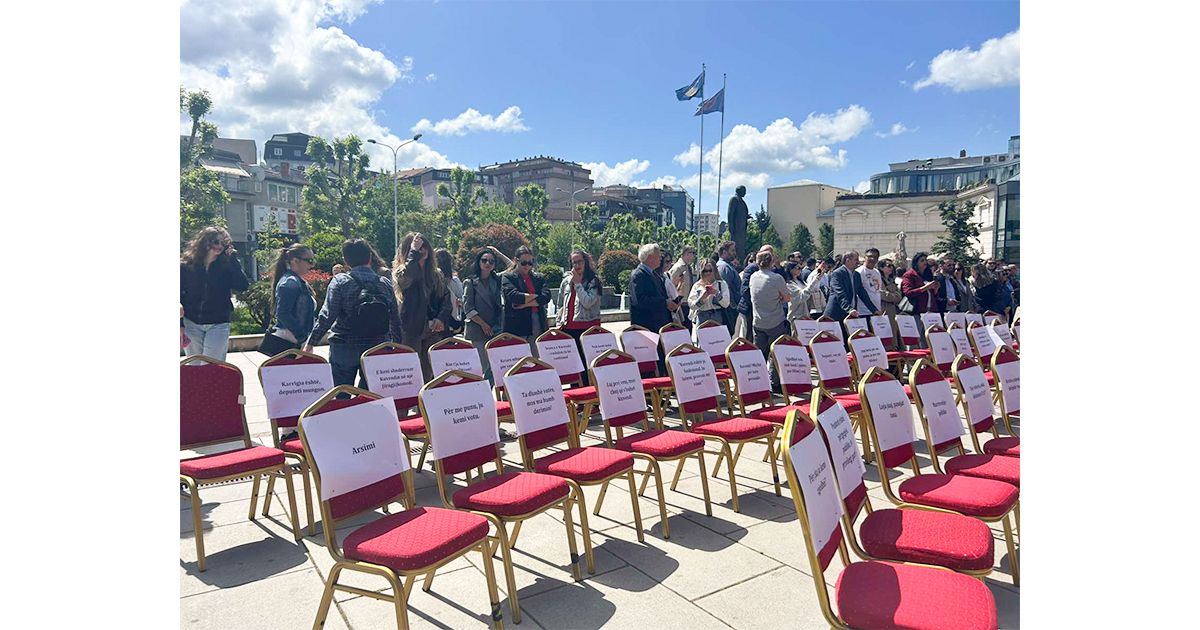In addition to KWN, various partners and donor organizations have been working towards institutionalizing GRB at the local level throughout 2015. One of these partners was the Organization for Security and Cooperation in Europe (OSCE), who held workshops and trainings with municipal officials of their partner municipalities. On 24 November, OSCE organized a closing workshop to discuss the legal framework related to GRB and their activities throughout the year.
Participants included budget and finance directors of various municipalities, chief finance officiers from different municipalities, gender equality officers, and KWN representative Donjeta Morina.
Naser Hashani, Chief Finance Officer of the Municipality of Kamenica, summarized Kamenica’s efforts in institutionalizing GRB. In his speech, he thanked KWN for providing continuous assistance to the process and offering mentoring and templates for their budget documents. Teki Shala, director of Budget and Finance of the Municipality of Gjakova, also expressed his gratitude towards KWN and its support offered to the Municipality. In addition to Gjakova and Kamenica, the Municipality of Rahovec had also collected gender disaggregated data and included it in their annual budget document submitted to the Ministry of Finance.
The discussion focused on what can be done in the following years, beyond mere data collection, with Mr. Shala and Mr. Hashani offering concrete examples of integrating GRB in different economic categories.
The discussions during the workshop were very profound and interesting. KWN is happy to note that the discourse surrounding GRB has begun to change substantially. Only a couple of years ago misconceptions over what GRB is and how it can be implemented were very widespread, whereas today budget directors and chief finance officers come together to discuss concrete ideas on how to integrate GRB in different economic categories.
The workshop was supported by OSCE, while KWN work related to GRB is supported by Austrian Development Agency (ADA), and Deutsche Gesellschaft fuer Internationale Zusammenarbeit GmbH(GIZ).


